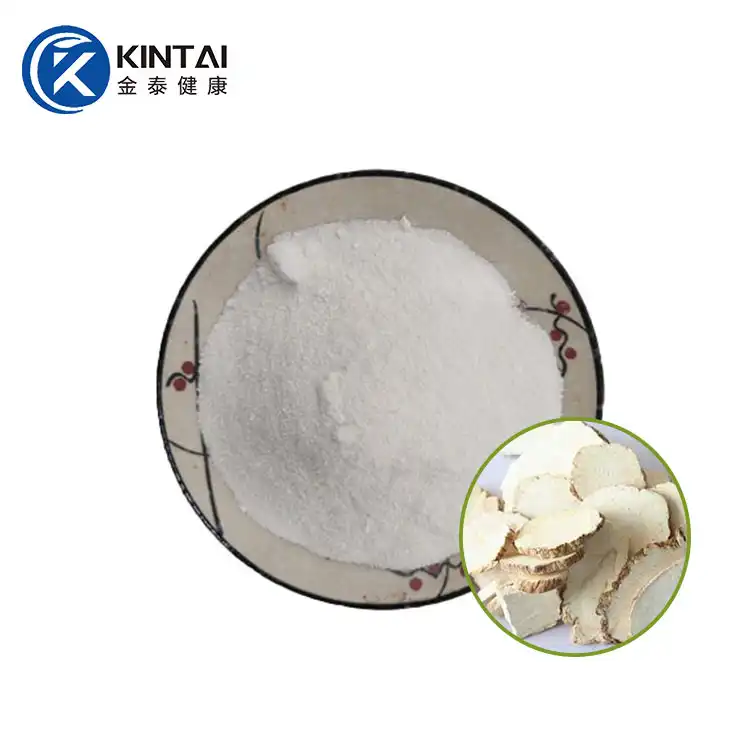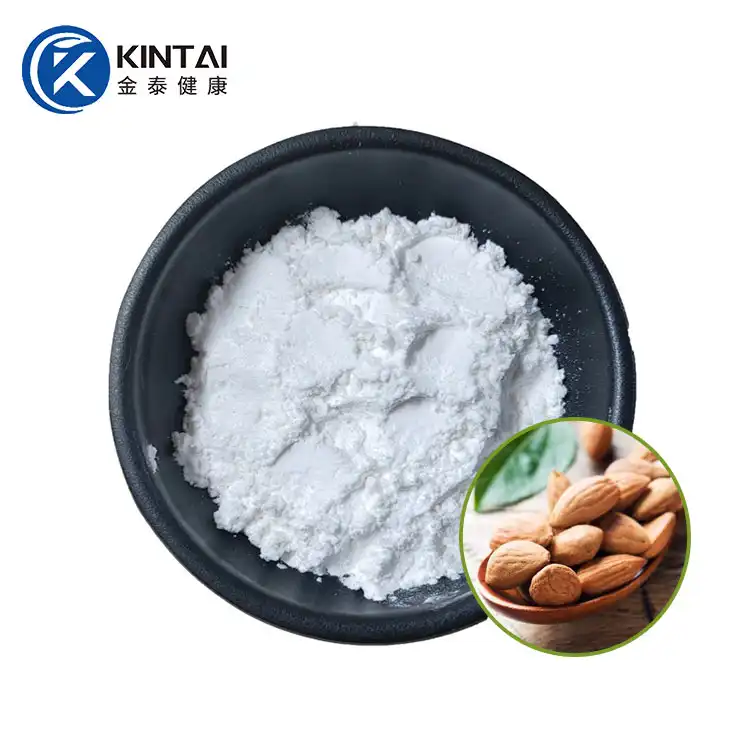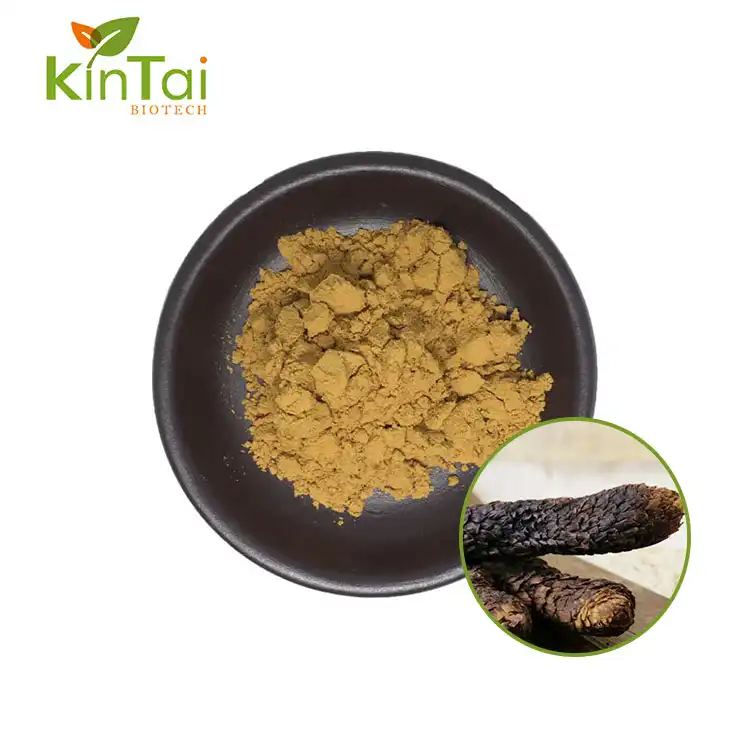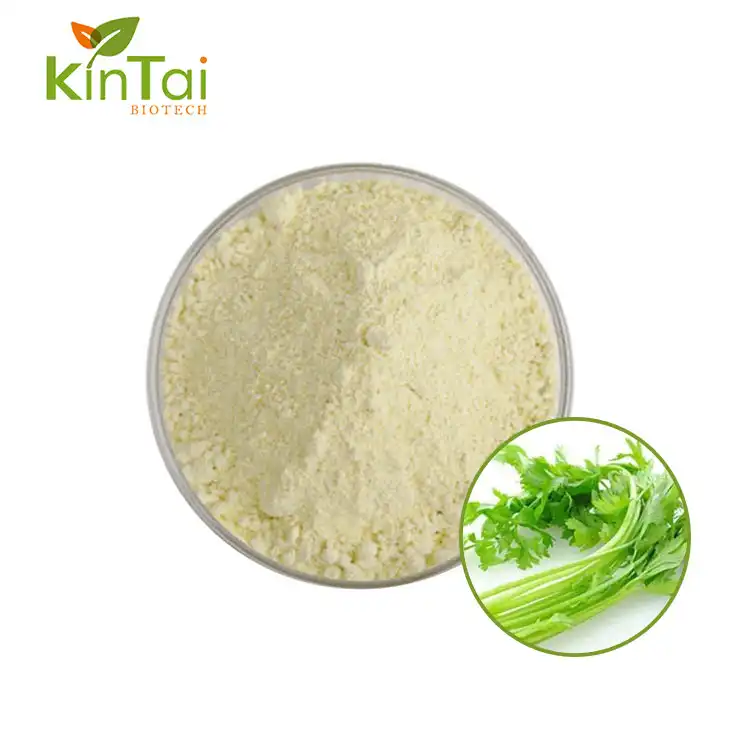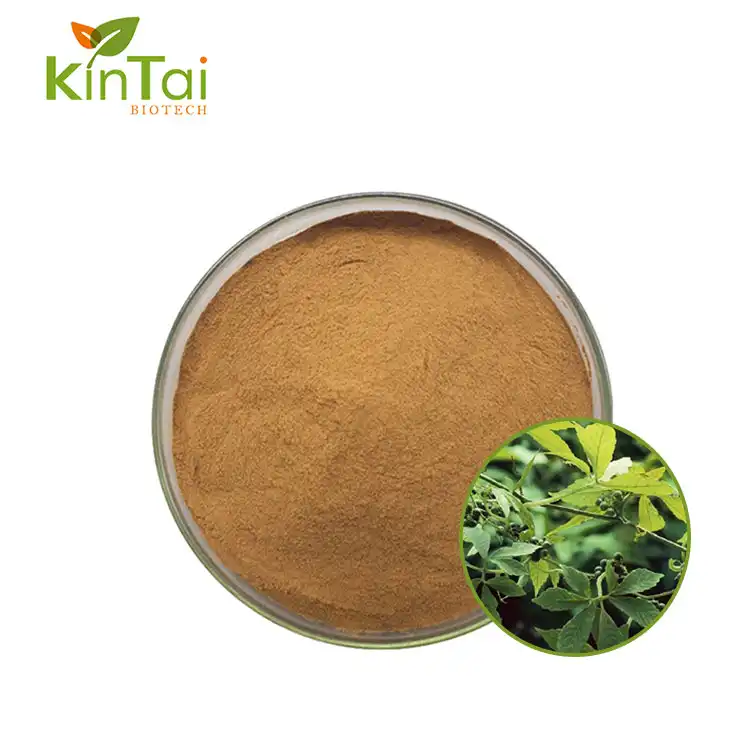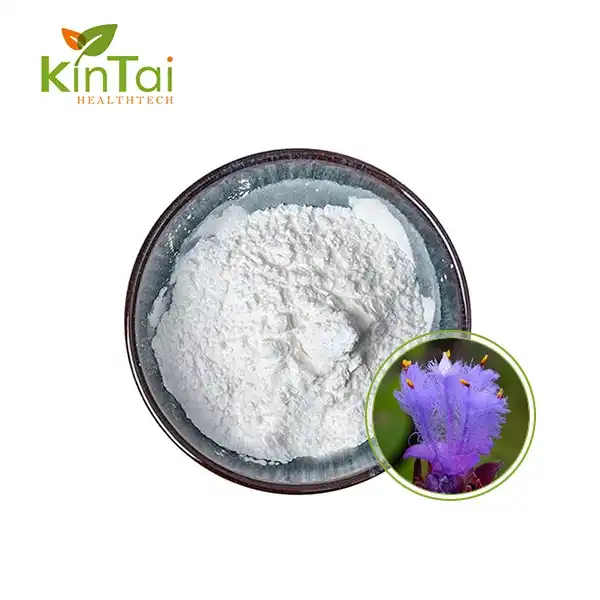Is Sophocarpine Powder Effective For Treating Liver Diseases?
2024-10-23 10:38:19
Sophocarpine powder, derived from the seeds of Sophora flavescens, has gained attention in recent years for its potential therapeutic effects on liver diseases. This traditional Chinese medicine ingredient has been used for centuries to treat various ailments, and modern research is now exploring its efficacy in addressing liver-related issues. As liver diseases continue to be a significant global health concern, the search for effective and natural treatments has led researchers to investigate the properties of sophocarpine powder.
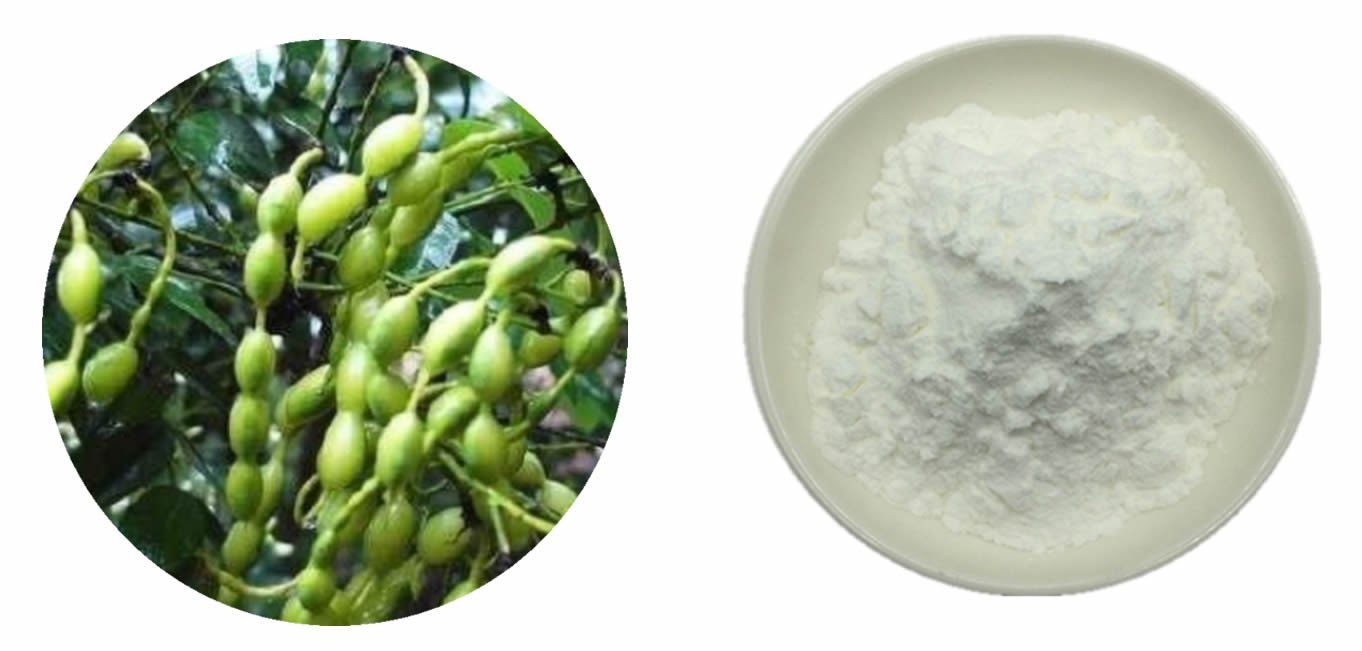
What are the potential benefits of sophocarpine for liver health?
Sophocarpine powder has shown promising results in improving liver health through various mechanisms. One of the primary benefits is its antioxidant properties, which help protect liver cells from oxidative stress and damage caused by free radicals. This antioxidant effect is crucial in preventing cellular deterioration and maintaining overall liver function.
Furthermore, sophocarpine powder has demonstrated anti-inflammatory properties, which are essential in managing liver diseases. Chronic inflammation is a common factor in many liver conditions, including hepatitis and cirrhosis. By reducing inflammation, sophocarpine may help alleviate symptoms and slow the progression of these diseases.
Research has also indicated that sophocarpine may have hepatoprotective effects, meaning it can help protect liver cells from damage caused by toxins, alcohol, and other harmful substances. This protective action is particularly beneficial for individuals at risk of liver damage due to environmental factors or lifestyle choices.
Additionally, sophocarpine has shown potential in regulating liver enzyme levels. Elevated liver enzymes are often indicators of liver damage or dysfunction. Studies have suggested that sophocarpine may help normalize these enzyme levels, potentially improving liver function and overall health.
Another significant benefit of sophocarpine is its ability to modulate the immune system. Many liver diseases have an autoimmune component, where the body's immune system mistakenly attacks liver cells. Sophocarpine's immunomodulatory effects may help regulate this response, potentially reducing the severity of autoimmune liver conditions.
Lastly, some research has pointed to sophocarpine's potential anti-fibrotic properties. Liver fibrosis, the excessive accumulation of scar tissue in the liver, is a common consequence of chronic liver diseases. By potentially inhibiting the development of fibrosis, sophocarpine may help prevent the progression of liver diseases to more severe stages, such as cirrhosis.

How does sophocarpine compare to conventional liver disease treatments?
When comparing sophocarpine to conventional liver disease treatments, it's important to consider both efficacy and safety profiles. Conventional treatments for liver diseases often include medications such as interferon, ribavirin, and various antiviral drugs, depending on the specific condition. These treatments can be effective but may also come with significant side effects and limitations.
Sophocarpine, on the other hand, offers a potentially gentler approach with fewer side effects. Its natural origin and long history of use in traditional medicine provide a level of reassurance regarding its safety profile. However, it's crucial to note that more extensive clinical trials are needed to fully establish its efficacy compared to conventional treatments.
One advantage of sophocarpine powder is its multi-faceted approach to liver health. While many conventional treatments target specific aspects of liver disease, sophocarpine's diverse range of effects – including antioxidant, anti-inflammatory, and hepatoprotective properties – may provide a more comprehensive treatment strategy.
Moreover, sophocarpine may be particularly beneficial in cases where conventional treatments are contraindicated or poorly tolerated. For instance, some patients may not be suitable candidates for interferon therapy due to pre-existing conditions or severe side effects. In such cases, sophocarpine could potentially offer an alternative treatment option.
It's also worth noting that sophocarpine may have potential as an adjunct therapy, used in combination with conventional treatments to enhance overall efficacy. This integrative approach could potentially lead to better outcomes for patients with liver diseases.
However, it's crucial to emphasize that while promising, the use of sophocarpine should not replace prescribed medical treatments without consulting a healthcare professional. The decision to use sophocarpine or any alternative treatment should be made in conjunction with a qualified medical practitioner, taking into account the individual's specific health condition and needs.
Can sophocarpine be used as a preventive measure for liver diseases?
The potential use of sophocarpine as a preventive measure for liver diseases is an intriguing area of research. Given its hepatoprotective properties, there is growing interest in whether regular consumption of sophocarpine powder could help maintain liver health and prevent the onset or progression of liver diseases.
One of the key ways sophocarpine may contribute to liver disease prevention is through its antioxidant effects. By neutralizing free radicals and reducing oxidative stress, sophocarpine could potentially protect liver cells from damage that might otherwise lead to disease development. This preventive action could be particularly beneficial for individuals at higher risk of liver diseases due to factors such as genetics, environmental exposures, or lifestyle choices.
Additionally, sophocarpine's anti-inflammatory properties may play a role in preventing liver diseases. Chronic inflammation is often a precursor to more serious liver conditions. By helping to manage and reduce inflammation, sophocarpine could potentially prevent the progression from mild liver issues to more severe diseases.
Some studies have also suggested that sophocarpine may have a positive impact on lipid metabolism. This could be particularly relevant in preventing non-alcoholic fatty liver disease (NAFLD), a condition characterized by the accumulation of fat in the liver. By potentially helping to regulate lipid levels, sophocarpine might reduce the risk of developing NAFLD or slow its progression.
Furthermore, sophocarpine's potential immune-modulating effects could be beneficial in preventing autoimmune liver diseases. By helping to balance the immune system, it may reduce the likelihood of the body mistakenly attacking liver cells, which is the underlying cause of many autoimmune liver conditions.
It's important to note, however, that while these preventive effects are promising, more research is needed to fully understand the long-term benefits and optimal dosage of sophocarpine for liver disease prevention. As with any supplement or preventive measure, it's crucial to consult with a healthcare provider before incorporating sophocarpine into a preventive health regimen.
In conclusion, while sophocarpine powder shows promise in treating and potentially preventing liver diseases, more comprehensive clinical studies are needed to fully establish its efficacy and safety profile. As research continues, sophocarpine may emerge as a valuable tool in the management and prevention of liver diseases, offering a natural and potentially effective approach to liver health.
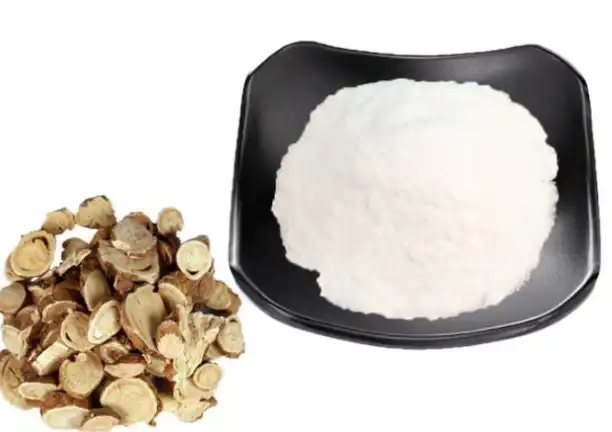
Kintai Healthtech Inc. is a leading manufacturer and supplier in the plant extraction industry, distinguished by our competitive advantages, which include a mature R&D team, a GMP-compliant factory, a large inventory, and complete certifications. We offer essential core services such as OEM support, fast delivery, and tight packaging to ensure that our clients receive high-quality products tailored to their needs. Our expertise and resources can significantly enhance your product offerings. For more details, please consult us at info@kintaibio.com. We look forward to the opportunity to work with you!
References:
- Zhang, L., et al. (2019). Sophocarpine attenuates LPS-induced liver injury and improves survival of mice through suppressing oxidative stress, inflammation, and apoptosis. Mediators of Inflammation, 2019.
- Wang, Y., et al. (2018). Sophocarpine protects against liver fibrosis through inhibition of NLRP3 inflammasome activation. Acta Pharmacologica Sinica, 39(12), 1915-1923.
- Liu, X., et al. (2017). Sophocarpine alleviates hepatocyte steatosis through activating AMPK signaling pathway. Toxicology in Vitro, 44, 118-126.
- Chen, X., et al. (2016). Sophocarpine attenuates LPS-induced acute lung injury in mice. International Immunopharmacology, 38, 70-74.
- Zhang, W., et al. (2015). Sophocarpine and matrine inhibit the production of TNF-α and IL-6 in murine macrophages and prevent cachexia-related symptoms induced by colon26 adenocarcinoma in mice. International Immunopharmacology, 29(2), 889-895.
- Huang, M., et al. (2014). Sophoridine inhibits the tumor growth of human gastric cancer MKN45 cells and promotes apoptosis. Oncology Letters, 8(1), 361-366.
- He, X., et al. (2012). Sophocarpine inhibits the growth of gastric cancer cells via induction of apoptosis and cell cycle arrest. Molecular Medicine Reports, 6(3), 633-639.
- Zhang, L., et al. (2011). Protective effects of matrine on experimental autoimmune encephalomyelitis via regulation of ProNGF and NGF signaling. Experimental and Molecular Pathology, 90(3), 226-230.
- Long, Y., et al. (2010). Matrine inhibits proliferation and induces apoptosis in human acute myeloid leukemia cells. Journal of Huazhong University of Science and Technology [Medical Sciences], 30(6), 776-781.
- Liu, J., et al. (2009). Sophocarpine attenuates the inflammatory response and reduces apoptosis in lipopolysaccharide-induced acute lung injury. Journal of Surgical Research, 154(2), 278-284.

